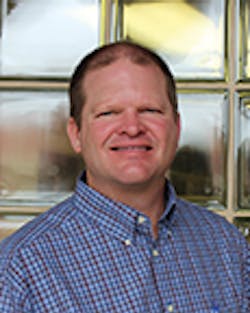Wow, what happened to the first quarter of 2015? I still haven’t gotten used to writing 2015 instead of 2014, and all of a sudden it’s the second quarter of the year. The first quarter has been robust for the industry, and many shops are seeing an uptick in business. If the first quarter is any indicator of 2015, it looks like it will be a good year.
Many operators are experiencing an increase in both ticket averages and car counts. It’s the “perfect world” that’s referenced by many. In this space, we have looked at this new normal. From the responses I have received, you’re agreeing with me. If we’re going to compete, we must adapt to the market expectations.
It’s a new era in the quick service industry with many old-timers adapting to new ways. For the first time in a long time, our industry is attracting new blood to the market. Have you noticed any changes in your market? The big box stores have remodeled and have a fresh new look for their service bays. The chain stores and oil change-plus operations have relocated the quick service bay closer to the street. In some cases, the oil change-plus sectors have moved the whole location to include a quick lube as a stand-alone facility.
But the most significant game changer has come from our older and more influential cousins in the industry, the new car dealers. Original equipment manufacturers (OEMs) have put quick service as a priority to the service department in the new car dealership. Have you noticed the redesign going on at your local dealerships? The quick maintenance bay is now the front door to the dealership. The OEMs have made new demands on the dealerships, and the dealers are responding by spending thousands of dollars to capture — or perhaps re-capture — the quick service sector of their markets. If the business theory better competition will make you better applies, then get ready. The new normal in our industry is going to include a well-trained and motivated competitor, the new car dealer.
Followers of National Oil & Lube News’ (NOLN) eNewsletters read the story of the dealer in south Texas who opened a 28 bay — yes, a 28 bay — quick service center last month. In many ways, this new normal climate is being created by the dealership. Dealerships spend a considerable amount of resources on an indicator called the customer service index (CSI). Dealers think of this indicator the way many operators think about ticket averages and car counts. It is a leading statistic that gets a lot of attention from both manufacturers and dealers. Research from the manufacturer has concluded what many in our industry have known for a long time; consumers want quick and efficient services performed by a well-trained and knowledgeable staff. In other words, consumers are demanding a new normal!
So what is your response to all this? What are you going to do? Who are you going to be? Visit, www.noln.net and review the first three articles that address this new normal. If you just want the recap, read on:
In January, we examined the customer profile. Never before in our industry have we served such a diverse group of customers. Each group influences the whole society but for the most part there are four groups in the customer profile. The silent generation, those who are 69 years old and older, have traditional values we will benefit from if we understand those values.
The baby boomers have very unique expectations on how they think we need to approach them and present our services. Generation X is squeezed between the boomers and millennials and prefers cost to brand name. Of course, the Generation Y or millennial group are those born after 1980, and they’re quickly becoming the 500-pound gorilla of the marketplace. If we do not adapt to them, we better prepare for our going out of business sales. If you would like an inside look at the millennial mind while you’re surfing around the NOLN website, read “Confessions of a Millennial,” by Erin Coldewey. It’s insightful and a little scary.
In February, we looked at customers’ expectations. Our customers expect you to be an expert! Everyone agrees, today’s vehicles have become technically sophisticated pieces of equipment. In the past, the owners manual would have sections on how to service various components on our vehicles. This is not the case anymore; in fact, most owners manuals today only suggest returning to the dealership for needed services.
Because of this and other circumstances, the buying public expects you to be an expert. An interesting perception the buying customer has is if a company has gone to the expense of constructing a building and equipping it with the tools to work on these sophisticated vehicles, then the employees must be experts. Why else would the shop owner go to the expense if they don’t have experts working on the vehicles? The February article continued explaining customer expectations and confirmed what many of us already knew — additional services have become as much a part of our industry as changing the oil and filter.
According to the 2014 NOLN Fast Lube Operator’s Survey, our customers have proven if we offer the products and the services, they prefer to buy them from us.
The March column covered an element of the new normal — employee expectations. Have you ever considered great customer service begins with great employees? We all want great employees, but to attract and retain great employees we need to consider what it is our employees want from us. One of the biggest surprises is, of the top expectations of employees, pay wasn’t the No. 1 reason an employee performs at a higher rate. Today’s employees who are largely represented by the Generation Y group want more than just a paycheck. Do not misunderstand, the pay rate is important, and an employee will consider the pay, but there are other factors and expectations that are also high on the employee expectation list.
Work environment is important. In fact, several polls show work environment is the No. 1 reason an employee will accept a job and the No. 1 reason an employee will quit their job. If the work environment is a leading reason why someone would quit his or her job, then it stands to reason that work environment would be a leading expectation of an employee.
Today’s workforce wants to be educated. Be sure to keep the education interesting with a combination of hands-on, classroom and even web-based training to keep your technicians current on today’s vehicles.
It’s very frustrating for a technician to be asked to perform a job and then not be given the tools needed to do the job correctly. Today’s workforce has a unique need for job satisfaction. Most of these millennials have a deep-seeded desire to work for something besides money. Technicians want to be recognized for a job well done. Recognizing an employee in a positive way is a guaranteed method for attracting and retaining good technicians.
What’s the new normal for operation? Today’s shops will find success when they are able to incorporate these expectations into their operation. In some cases, it will mean re-examining the operation policy and making changes. The old line, “That’s the way we have always done it,” is not going to work in our new environment. Expectations have changed.
Have you changed with them? If you haven’t, why not? Over the next few months, we will consider the idea of a new operation using time-proven and carefully researched ideas of what it will take to be successful in the new normal.
RAGAN HOLT is the quick lube advisor for National Oil & Lube News. He is available for consulting and training in the quick oil and lube industry. He can be contacted at: [email protected]
About the Author

